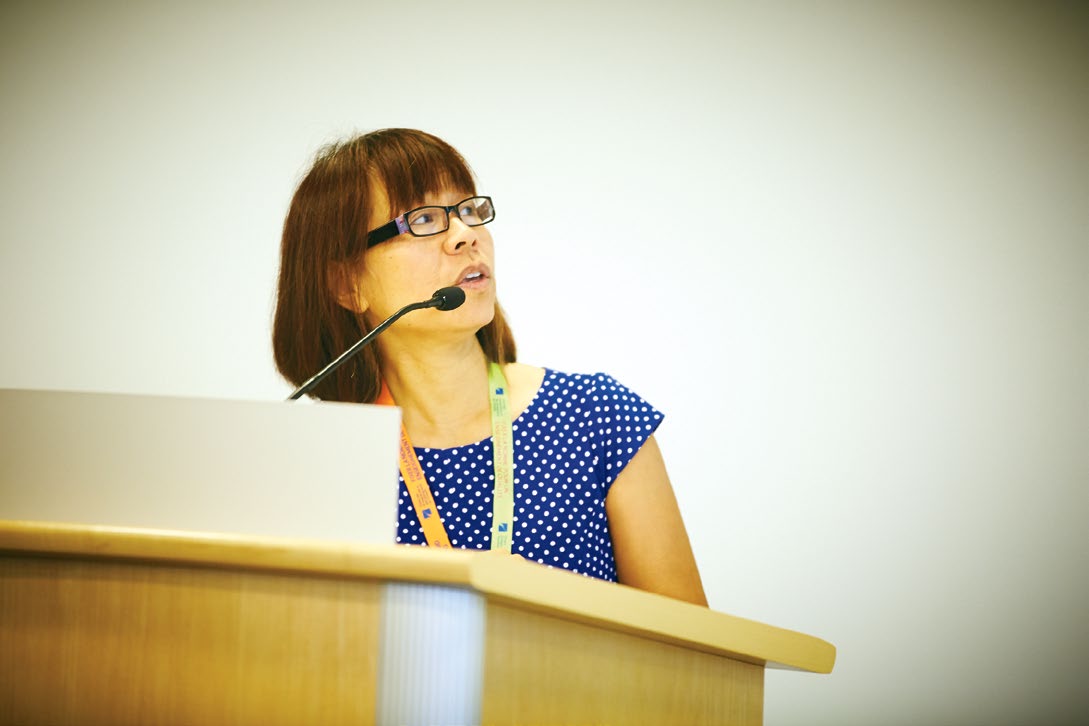Share this page
Governing Ourselves informs members of legal and regulatory matters affecting the profession. This section provides updates on licensing and qualification requirements, notification of Council resolutions and reports from various Council committees, including reports on accreditation and discipline matters.

Inclusivity was a touchstone topic for many of the speakers at the Ontario College of Teachers’ 2014 annual meeting of members, held on October 1 at the College.
Whether they spoke about diversity in the classroom, the College’s new guiding principles or provincewide focus groups to assess awareness and opinion, presenters highlighted the value and necessity of a full range of voices.
Keynote speaker Dora Nipp, a lawyer, ethnologist and human rights education and change specialist with the Ontario Human Rights Commission, comes from a family that helped build the Canadian Pacific Railway.
At the Commission, Nipp develops human rights curricula and e-learning and training programs, encouraging students to learn about their rights and responsibilities under the Ontario Human Rights Code. For Nipp, whose presentation covered diversity, equity, anti-racism and anti-oppression, teaching human rights in the classroom can be a starting point for lifelong learning about inclusion and the value of respecting the dignity and worth of all Ontarians.
“An equitable and inclusive classroom gives students a physical, social and emotional environment that is welcome, safe, supportive and respectful,” Nipp said. “Students see themselves reflected in the curriculum, physical surroundings and the broader environment where diversity is valued.”
Inclusivity is also an integral part of the College’s set of values, noted Council Chair Liz Papadopoulos, OCT, who spoke about 2013 milestones, including the strategic-planning process to determine those values. “For the first time in College history, council members and senior staff met to establish a mission, vision, values and strategic priorities for this organization,” said Papadopoulos.
Council and the College conducted extensive research with a diverse range of people. “Our deliberations were informed by the results of a broad consultation process with the Ministry of Education, faculties of education, education thought leaders and fellow regulators,” Papadopoulos explained. “We surveyed the College staff and held provincewide focus groups with College members and parents. These first-hand conversations helped frame our planning process.”
The plan will set the course for the College over the next three to five years. “It will focus our efforts, allow us to anticipate change and guide our decision-making,” added Papadopoulos.
The College and Council achieved another milestone in 2013: The development of a new public awareness initiative. During his presentation, Registrar Michael Salvatori, OCT, highlighted the College’s efforts in conducting extensive focus groups across the province, revealing a need to provide more information to the public about the College and its role.
“In 2013, we also did more to connect with First Nations communities interested in becoming providers of Additional Qualifications courses in specialized areas related to First Nations, Métis and Inuit education,” said Salvatori. “Elders, educators and students participated in discussions to inform the development of these course guidelines.”
Salvatori noted the importance of a collaborative and inclusive approach, as the College continues to evolve. “No profession is static,” he said. “As long as we continue to move forward and learn together we will continue to set the standards for great teaching and maintain the public’s trust every step of the way.”